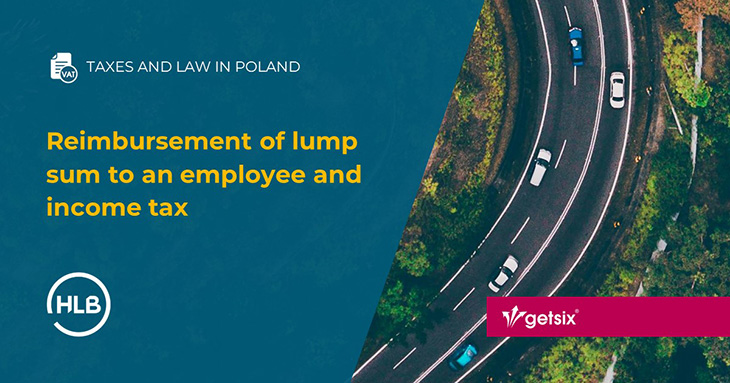Reimbursement of lump sum to an employee and income tax
In a ruling dated July 10, 2024, under case number II FSK 1329/21, the Supreme Administrative Court in Poland (NSA) issued a significant decision regarding the interpretation of the Personal Income Tax (PIT) Act. The NSA determined that the tax exemption mentioned in Article 21(1)(23b) of the PIT Act is regulatory in nature, meaning it cannot be applied more broadly than explicitly stated in the provisions. In practice, this means that the reimbursement by an employer to an employee for expenses incurred from using the employee’s vehicle for work purposes will most often be considered taxable income under the PIT Act.
Legal context and interpretation of provisions
According to Article 21(1)(23b) of the PIT Act, the reimbursement of expenses incurred by an employee for using their own vehicle for work purposes in local travel is exempt from income tax, provided that the obligation to cover these costs by the employer, or the right to reimbursement, arises directly from other laws. This reimbursement is exempt up to the amount of a monthly lump sum or up to an amount not exceeding the rate per kilometer of vehicle use, as specified in separate regulations issued by the relevant minister, provided that the vehicle’s use (excluding lump sum payments) is documented in a vehicle log maintained by the employee.
Previously, taxpayers questioned whether, to apply this exemption, the right to reimbursement of expenses for using personal vehicles had to be explicitly stated in other legislation, or if the general permissibility of agreements between employer and employee under the Civil Code (as long as it does not violate the Labour Code) was sufficient.
After the Constitutional Tribunal’s ruling of July 8, 2014 (K 7/13), taxpayers also argued that the interpretation of provisions should be constitutional, and since the employee only receives reimbursement for expenses that the employer is obliged to cover, the employee does not gain any taxable income from this reimbursement.
Initially, a taxpayer-favourable stance was confirmed in the NSA ruling of October 16, 2019 (II FSK 3531/17), where the court opined that the reimbursement of costs incurred by employees for using private cars for business purposes does not constitute income, as it does not generate any financial gain for the employee. Thus, such reimbursements, which are expenses the employer is obliged to cover, are not subject to PIT.
However, in the July 10, 2024, ruling (II FSK 1329/21), the NSA expressed a different view, emphasizing that Article 21(1)(23b) of the PIT Act must be interpreted strictly according to its literal wording. This means there is no room for a broader, more liberal application of the tax exemption, as it could lead to abuse of the provision by employers and employees.
Significance of the Ruling
The NSA’s ruling of July 10, 2024, aligns with the existing jurisprudence that emphasizes a strict approach to tax exemptions. In previous rulings on June 17, 2020 (II FSK 717/20), October 22, 2020 (II FSK 1680/18, II FSK 1695/18), November 10, 2020 (II FSK 1863/18), January 22, 2021 (II FSK 2472/18), and May 12, 2021 (II FSK 434/20), the Supreme Administrative Court (NSA) consistently stated that reimbursement of costs to employees for using their private vehicles for work is generally considered taxable income. The NSA reaffirmed that unless these reimbursements meet strictly defined exemption criteria, they will be treated as taxable employee income.
Practical Consequences of the Ruling
The NSA’s ruling of July 10, 2024, indicates that the tax exemption specified in Article 21(1)(23b) of the PIT Act is only available to a very narrow group of employees and only in cases explicitly mentioned in:
- The Act of September 28, 1991, on Forests
- The Act of September 5, 2008, on the Commercialization of the State Public Utility Enterprise “Poczta Polska”
- The Act of March 12, 2004, on Social Assistance.
In other cases, the exemption in Article 21(1)(23b) of the PIT Act does not apply.
Employers and employees should, therefore, carefully analyse each case of reimbursement to avoid unexpected tax consequences.
 Source: This article was prepared by Tomasz – Senior Tax Consultant at getsix® Tax & Legal
Source: This article was prepared by Tomasz – Senior Tax Consultant at getsix® Tax & Legal
If you have any questions regarding this topic or if you are in need for any additional information – please do not hesitate to contact us:
CUSTOMER RELATIONSHIPS DEPARTMENT

ELŻBIETA
NARON-GROCHALSKA
Head of Customer Relationships
Department / Senior Manager
getsix® Group
***














